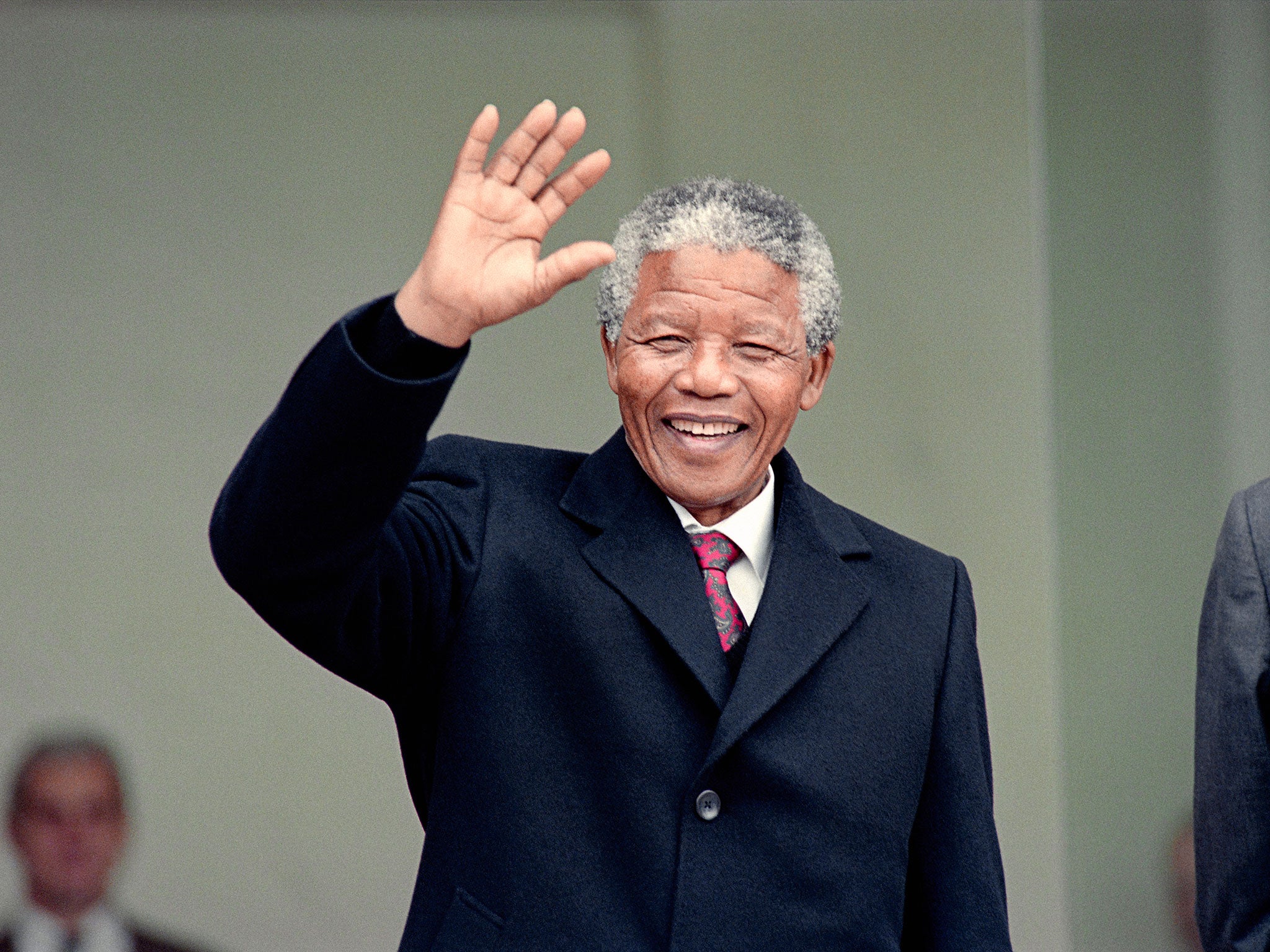CIA's involvement in arrest of Nelson Mandela is a classic example of US mistaking nationalism for communism
Mandela and the African National Congress were perfect examples of the Agency's anti-Communist fixation

Your support helps us to tell the story
From reproductive rights to climate change to Big Tech, The Independent is on the ground when the story is developing. Whether it's investigating the financials of Elon Musk's pro-Trump PAC or producing our latest documentary, 'The A Word', which shines a light on the American women fighting for reproductive rights, we know how important it is to parse out the facts from the messaging.
At such a critical moment in US history, we need reporters on the ground. Your donation allows us to keep sending journalists to speak to both sides of the story.
The Independent is trusted by Americans across the entire political spectrum. And unlike many other quality news outlets, we choose not to lock Americans out of our reporting and analysis with paywalls. We believe quality journalism should be available to everyone, paid for by those who can afford it.
Your support makes all the difference.The tip-off by a CIA operative that led to the arrest of Nelson Mandela in 1962 – long suspected and now apparently confirmed on his deathbed by the individual concerned – will go down as another chapter in the ever expanding volume recording the dark deeds perpetrated by the Agency. But however reprehensible, it was entirely consistent with official America’s world view at the time.
All that mattered was the Cold War and the global struggle against communism. This approach led the US, in the shape of the CIA, to support a host of unsalubrious right wing regimes across the globe and to do all in its power to undermine and topple governments supposedly sympathetic to Soviet aims.
Nationalism was conflated with communism. Nationalisations carried out by left-leaning governments to restore national ownership of national assets were seen as the thin end of the socialising wedge – and often directly contrary to the interests of American business, which Democratic and Republican adminstrations alike, and by extension the CIA, vigorously sought to protect.
Mandela and the African National Congress were perfect examples of this anti-Communist fixation. In the early 1960s, the full horrors of the apartheid regime were not yet grasped by the outside world. For the CIA, the ANC was a subversive organisation trying to topple a fiercely anti-communist government. If succeeded, it reasoned, the path would be clear for the Soviet Union to gain dominance in southern Africa. Mandela had to be stopped, and he was.
To be fair, the CIA had a point. As Mandela was taken into custody, the Agency was amassing evidence of the Soviet arms buildup in Cuba that would lead to the October 1962 Cuban missile crisis. But the Agency, formally created in 1947, had aleady been doing similar things for a decade or more.
In 1953 – in an operation that poisons US-Iranian relations to this day – the CIA, backed by Britain, organised the coup that toppled then Iranian prime minister Mohammed Mossadegh, whose sin was to seek to nationalise the country’s oil industry. For the US this would not only be a major economic setback. It could also see Iran fall into the Soviet sphere of influence. Again, Mossadegh had to be stopped – and he was.
The pattern repeated itself around the world, not least in Vietnam, a classic instance of the US mistaking nationalism for communism. But nowhere was the Agency’s meddling as common and as damaging to local populations as in the US ‘backyard’ of Central South America.
A CIA-led coup in Guatemala in 1954 deposed that country’s democratically elected president and set off decades of civil strife. El Salvador and Nicaragua suffered similarly. Even before the missile crisis the CIA was plotting to get rid of Fidel Castro, first in the illfated 1961 Bay of Pigs invasion, and then with countless – and sometimes laughable – plots to kill him, including one featuring poisoned cigars.
The same anti-communist and pro-US business mindset was reflected in the overthrow in 1973 of Chile’s leftist government of Salvador Allende and its replacement by the Pinochet dictatorship. The US and the CIA did not organise the coup, but knew of it and condoned it, and afterwards strongly supported Pinochet.
The 1970s saw some of the CIA's most uncomfortable moments, as it emerged that President Nixon had used it for nefarious domestic purposes. The “Church Committee,” set up by Congress after Watergate and led by Idaho Senator Frank Church, exposed some of the CIA’s most infamous covert operations.
But calls for the agency’s wholesale reform or even abolition have gone unheeded. The war on terror has replaced the war on communism, but similar means have being used: rendition, torture and secret ‘black site’ camps. The tip-off that set Nelson Mandela to prison for 27 years is likely to be seen as little more than a footnote in the volume of dark deeds.
Join our commenting forum
Join thought-provoking conversations, follow other Independent readers and see their replies
Comments